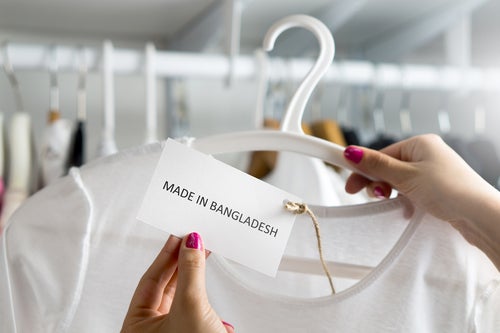
The objective of the BGMEA study is to identify the potential scope of non-cotton textile and apparel for Bangladesh in the global apparel market and formulate a strategy to develop the country’s overall competitiveness and strength in the area.
The ‘Fibre Diversification Study of Non-Cotton Textile and Apparel for Bangladesh in the Global Apparel Market,’ study will also identify key challenges for Bangladesh to capture a significant piece of the non-cotton apparel market. The BGMEA study will analyse non-cotton product categories in terms of complexities, resources and trade volumes while the economic, demand and sustainability rationale of non-cotton apparel will also be examined.
BGMEA President Faruque Hassan said: “Cotton has so far driven the country’s growth in the apparel sector. But the growth of cotton-based products seems to have reached its peak, and there is little scope for growth through the natural fibre because the global fashion trend has drastically shifted from cotton to man-made fibres. It is now time for us to tap into this segment, where I believe this study will play a crucial role.”
Competitiveness in terms of products, technologies, skill, cost and availability of other resources will be assessed in the study which will also identify challenges that limit Bangladesh’s potential to supply noncotton products. BGMEA will use this information to develop a roadmap for manufacturers, investors, policymakers, development partners and other influencers, detailing approaches and ways to establish a strong presence in the non-cotton textile and apparel market.
Business director of Wazir Advisors, Varun Vaid, said: “Global textile demand is rapidly moving towards manmade fibres. With better functionality, price competitiveness and popularity of categories like sportswear and athleisure; manmade fibres are on a high growth path. Global trade is also at the cusp of restructuring with China vacating trade share. Bangladesh can leverage its manufacturing competitiveness and buyer relationship to capitalise on this opportunity. But the key aspect will be to present itself as a diversified supplier across all categories and fibres.”
The BGMEA study will be funded by IFC’s Partnership for Cleaner Textile (PaCT II) program, supported by the government of Denmark through the Danish International Development Agency (DANIDA) and the Embassy of the Kingdom of the Netherlands in Bangladesh.

US Tariffs are shifting - will you react or anticipate?
Don’t let policy changes catch you off guard. Stay proactive with real-time data and expert analysis.
By GlobalDataDigitisation
In another initiative, the BGMEA launched its online ‘Cash Incentive Automation System’ to make application procedures faster, simpler, transparent and more convenient for garment factories.
BGMEA members will be able to submit their applications online for cash incentives provided by the government to encourage and boost RMG exports. Hassan said that the world is going through a digital revolution where adapting to the changing trends with the available technologies is a must to remain competitive in the global market.


